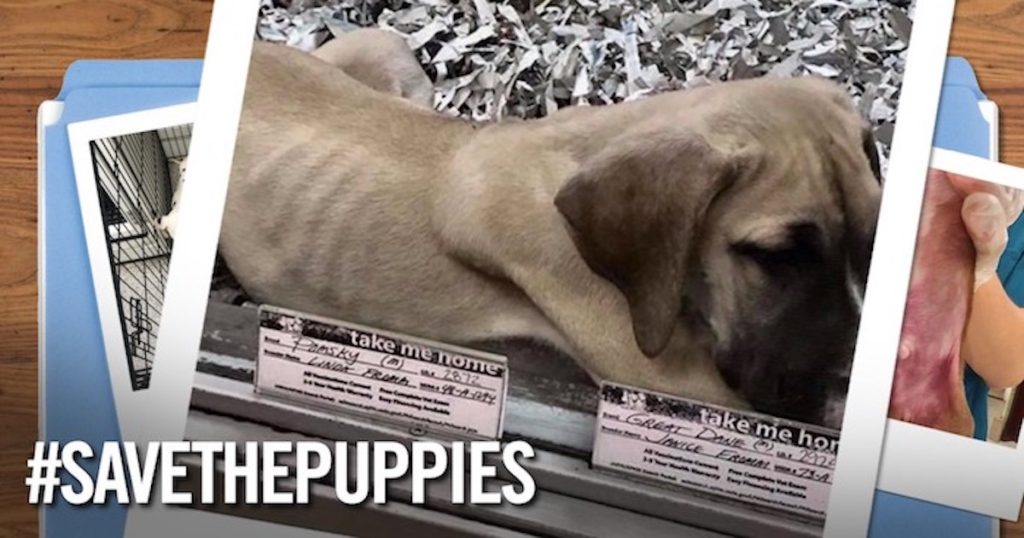
#Savethepuppies – Part One: Amending the Law to Protect the Pups
- Lain Kahlstrom and Tina Meredith
Our laws only have meaning for animals if they are enforced, and Arizona’s law to protect animals and shield consumers from buying sick or inhumanely reared dogs has been a joke.
Three of Arizona’s biggest cities — Phoenix, Tempe, and Tucson — have already passed or were on their way to enacting, city ordinances that banned the commercial sale of dogs at pet stores before the state law nullified their efforts.
If the state had been prepared to pick up the ball and do solid anti-puppy mill work, that’s one thing. But the state has taken no role on what appears to be an unenforceable law to help the dogs!
That’s why we’re bringing this issue to your attention — to amend this law and to finally bring a solid anti-puppy mill policy to Arizona.
The existing state law requires pet stores to list the breeders they buy dogs from — with the presumption that the public will steer clear of acquiring dogs from breeders who are violating the law and treating the dogs poorly. As such, pet store owners are required to make the most recent two years’ worth of their purchasing records available to any law enforcement upon request. Yet there is no punishment for those store owners who have declined to comply with the law. In our investigation, one owner has repeatedly declined to turn over complete and accurate records upon request, and there’s been no consequence for that flouting of the law.
The law depends on the USDA conducting serious investigations of puppy mills and then making those records available to pet stores, the public, and law enforcement. But the USDA took down or heavily redacted inspection reports, making it virtually impossible for anyone to research breeders’ licenses for violations.
These redaction efforts were accompanied by a change in enforcement philosophy: The agency, during the Trump years, stopped citing violators and directed their inspectors to treat violations of the Animal Welfare Act as “teachable moments.” As a result, there are shockingly few citations during this period, and it’s not because the bad actors cleaned up their act.
Here are just a few of the key problems with the law as it’s currently written:
- The law states that this is a matter for state-wide concern, but places 100% of the burden of law enforcement on “cities, towns and counties.” The state itself has no role in enforcement.
- Cities and counties are not proactively monitoring the pet stores’ compliance with the law and these entities do not have the capacity to do these investigations. That means investigations are left up to concerned citizens, volunteers and organizations such as ours.
- Cities may only enforce the law based on which puppies arrive at the store in their own city. This does not address the root of the state-wide problem and lets bad actors off the hook.
- The law requires only “good faith” efforts on the part of pet store owners to know which breeders have violations.
- The law is 100% dependent on federal enforcement of the Animal Welfare Act, with effective USDA inspections and transparency. This is well outside the scope or influence of any given state, to ensure that federal law is being enforced.
This is a disastrous law and set of circumstances. We have done our best to complement formal enforcement efforts, but the undeniable conclusion is that the law has fundamental flaws.
Stay tuned for next steps, including how YOU can get involved, in the final installment of this story next week.